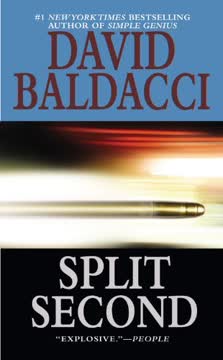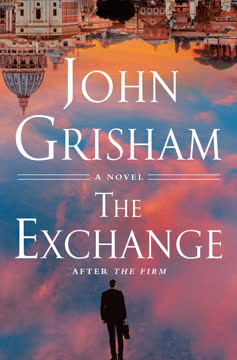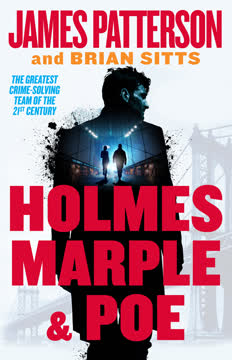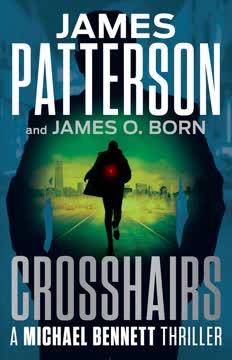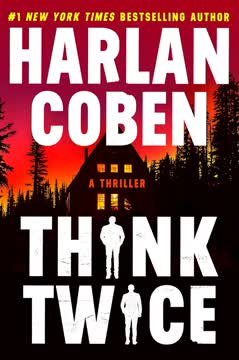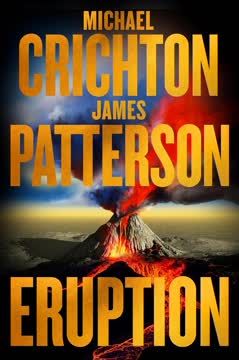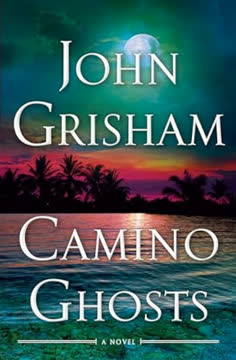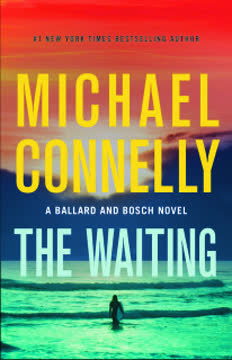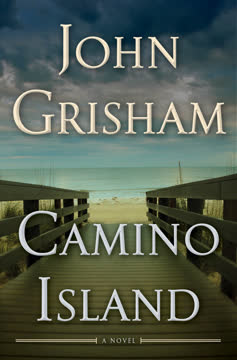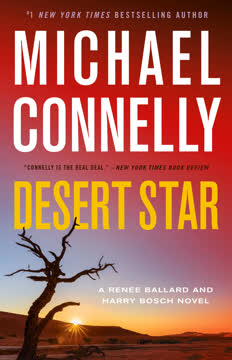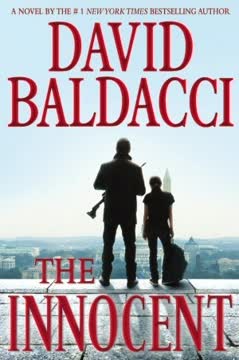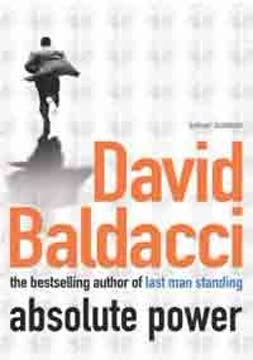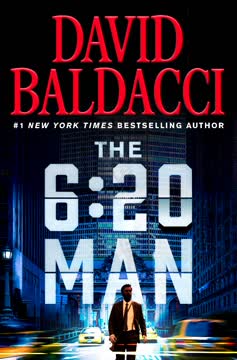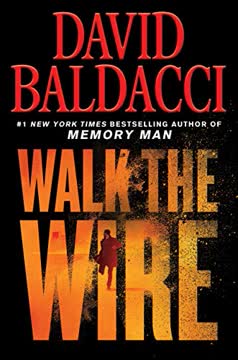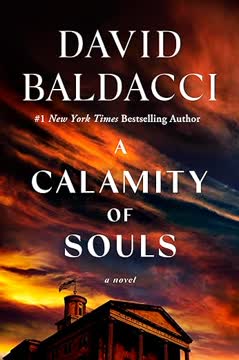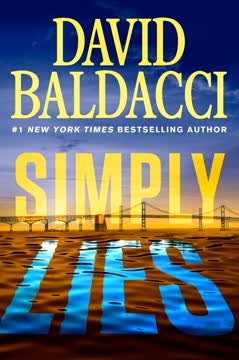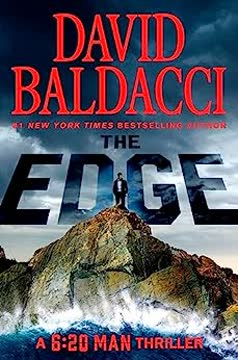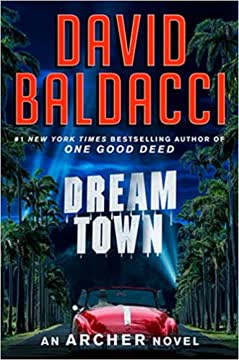Plot Summary
Unexpected Heroism in a Convenience Store
FBI agent Dillon Savich finds himself in a life-threatening situation when he stops at a convenience store after a workout. A robbery unfolds, and with his quick thinking and precise action, Savich subdues the robber, saving a father and his two children. This incident leaves him contemplating the randomness of violence and the fragility of life, setting the stage for a deeper exploration of his character and the challenges he faces in his line of work.
A Deadly Encounter in Cleveland
Alana Rafferty, a graphic artist, meets a charming man at a bar in Cleveland, unaware that he is a serial killer targeting women. After a night of drinks, she is found dead in her apartment, strangled with a wire. The murder bears similarities to other unsolved cases, prompting the FBI to take notice. This chapter introduces the chilling modus operandi of the killer and sets the stage for the FBI's involvement.
The FBI's Newest Case Unfolds
Special Agents Lucy Carlyle and Cooper McKnight are assigned to the case of the serial killer, dubbed the "Black Beret" due to his distinctive attire. As they delve into the investigation, they uncover a pattern of murders across multiple cities, all linked by the killer's method and choice of victims. The agents face the daunting task of stopping a murderer who seems to be always one step ahead, while also dealing with personal challenges and tensions within the team.
A Family's Hidden Tragedy
After her father's sudden death, Lucy Carlyle moves into her grandmother's house, only to uncover a horrifying secret: her grandfather's skeleton hidden in the attic. The discovery reveals that her grandmother murdered her grandfather, a truth her father had kept hidden for years. This revelation forces Lucy to confront her family's past and her own feelings of betrayal and loss, adding a personal dimension to her professional life.
The Ring's Mysterious Power
Among her grandfather's belongings, Lucy finds an old ring with mysterious symbols. As she experiments with it, she discovers it has the power to stop and rewind time for a few seconds. This newfound ability presents both an opportunity and a burden, as Lucy grapples with the implications of wielding such power and the responsibility it entails.
A Killer's Identity Revealed
Through diligent investigation and a crucial witness account, the FBI identifies the serial killer as Kirsten Bolger, the daughter of infamous murderer Ted Bundy. The revelation sends shockwaves through the media and law enforcement, complicating the case as the killer's notoriety grows. The agents must navigate the heightened public interest and pressure to capture Bolger before she strikes again.
A Dangerous Game in New York
In New York City, the killer strikes again, but this time, a witness survives. Agents Sherlock and McKnight work with local detectives to piece together the events leading up to the murder. They uncover a potential accomplice, adding a new layer of complexity to the case. As the investigation intensifies, the agents must race against time to prevent further killings and bring the perpetrators to justice.
A Desperate Escape Attempt
Kirsten Bolger, the notorious daughter of Ted Bundy, is on the run after a failed attempt to kill FBI agent Dillon Savich. With her partner Bruce Comafield dead, Kirsten is desperate and dangerous, leaving a trail of chaos in her wake. As she flees south, she takes FBI agent Cooper McKnight hostage, using him as a shield against law enforcement. Despite the odds, Coop remains hopeful, knowing his cell phone's GPS is being tracked by his colleagues. Kirsten's erratic behavior and obsession with her father's legacy drive her actions, making her a volatile threat to anyone in her path.
A Deadly Confrontation Unfolds
As Kirsten's flight continues, she becomes increasingly unstable, her actions unpredictable. The FBI closes in, tracking her movements with precision. A confrontation is inevitable, and it unfolds in a tobacco field in North Carolina. Coop seizes an opportunity to escape, but not before being shot by Kirsten. Despite his injury, he manages to alert the authorities, leading to a dramatic showdown. Kirsten is finally captured, her reign of terror brought to an end. The relief is palpable, but the cost of her capture weighs heavily on those involved.
Secrets and Betrayals Revealed
Back in Washington, Lucy Carlyle faces her own challenges as she uncovers the truth about her family's dark past. Her cousin Miranda, driven by jealousy and a sense of entitlement, reveals her knowledge of a powerful ring left to Lucy by their grandfather. Miranda's obsession with the ring's supposed abilities leads to a tragic confrontation, resulting in her suicide. The revelation of Miranda's true parentage and her mother's infidelity adds another layer of complexity to the family's history, leaving Lucy to grapple with the fallout.
A Ring's True Power
The ring, a family heirloom, is at the center of the chaos surrounding Lucy. Its power to alter time for a few seconds is both a blessing and a curse. Lucy uses it to save Savich's life, but the responsibility it carries is immense. The ring's potential to change the course of events raises ethical questions about its use. Ultimately, Lucy decides that the power to alter fate is too great for any one person to wield, leading her to make a difficult decision about the ring's future.
A New Beginning
In the aftermath of the case, Lucy and Coop find solace in each other's company, their relationship strengthened by the trials they've endured. The ring, once a symbol of power and responsibility, is now a memory, its potential for harm too great to ignore. As they stand together, they look to the future with hope, ready to face whatever challenges come their way. The past may be fraught with pain and betrayal, but the promise of a new beginning offers a chance for healing and growth.
Characters
Dillon Savich
Savich is a seasoned FBI agent known for his quick thinking and bravery. He is deeply committed to his work and driven by a strong sense of justice. Savich's encounter with the convenience store robbery highlights his ability to remain calm under pressure and his dedication to protecting others. His personal life is intertwined with his professional duties, as he navigates the challenges of balancing both.
Lucy Carlyle
Lucy is a dedicated FBI agent who becomes personally involved in the investigation of the Black Beret. Her discovery of her grandfather's murder and the family secret she uncovers adds a layer of complexity to her character. Lucy is resilient and resourceful, but the emotional toll of her family's past weighs heavily on her, influencing her actions and decisions throughout the investigation.
Cooper McKnight
Cooper is Lucy's partner on the case, known for his charm and keen observational skills. He provides support and balance to Lucy, helping her navigate the emotional and professional challenges she faces. Cooper's easygoing demeanor masks a deep commitment to his work and a strong sense of loyalty to his colleagues.
Kirsten Bolger
Kirsten is the daughter of Ted Bundy, inheriting her father's penchant for violence. She is cunning and manipulative, able to blend into her surroundings and evade capture. Her identity as the Black Beret adds a chilling dimension to the case, as her actions are driven by a complex mix of inherited traits and personal motivations.
Sherlock
Sherlock is a highly skilled FBI agent known for her intelligence and determination. She plays a crucial role in the investigation, using her analytical skills to piece together the killer's pattern and identify key leads. Sherlock's partnership with Coop is marked by mutual respect and a shared commitment to solving the case.
Bruce Comafield
Bruce is identified as a potential accomplice to Kirsten Bolger, adding a new layer of intrigue to the investigation. His connection to the killer and his role in the murders remain unclear, prompting the agents to delve deeper into his background and motivations.
Miranda Silverman
Miranda is Lucy's cousin, driven by jealousy and a sense of entitlement to a powerful family heirloom. Her obsession with the ring's abilities leads to a tragic confrontation and her eventual suicide. Miranda's actions reveal deep-seated family secrets and the destructive power of envy.
Sentra Bolger
Sentra is Kirsten's aunt, who reveals the truth about Kirsten's parentage and her connection to Ted Bundy. Her manipulative nature and willingness to withhold information make her a complex figure in the unfolding drama. Sentra's influence on Kirsten is significant, shaping her understanding of her father's legacy.
Plot Devices
The Ring
The ring found by Lucy in her grandfather's safe-deposit box is a central plot device, possessing the power to stop and rewind time for a few seconds. This ability introduces a supernatural element to the story, raising questions about fate, responsibility, and the ethical implications of altering events. The ring's origins and purpose are shrouded in mystery, adding an element of intrigue and suspense to the narrative.
The Black Beret
The Black Beret serves as both a nickname for the killer and a symbol of her modus operandi. It represents the killer's ability to blend in and strike without warning, creating an atmosphere of fear and uncertainty. The beret becomes a key piece of evidence in the investigation, helping the agents piece together the killer's movements and identify her patterns.
Family Secrets
The revelation of Lucy's family secret serves as a catalyst for her character development and the unfolding of the plot. The hidden truth about her grandfather's murder forces Lucy to confront her past and reconcile her personal and professional identities. This plot device adds depth to the narrative, exploring themes of loyalty, betrayal, and the impact of family history on individual choices.
Kirsten's Legacy
Kirsten's connection to her father, Ted Bundy, serves as a reminder of the potential for inherited violence and the impact of a notorious legacy. Her actions are driven by a desire to live up to her father's reputation, adding a chilling dimension to the narrative. The exploration of Kirsten's motivations and her ultimate capture highlight the complexities of justice and the challenges of confronting a violent past.
Analysis
"Split Second" by David Baldacci delves into the complexities of justice, the impact of family secrets, and the chilling legacy of violence. Through the intertwined narratives of FBI agents and a notorious serial killer, the book explores themes of loyalty, betrayal, and the ethical implications of wielding power. The mysterious ring serves as a metaphor for the burden of responsibility and the temptation to alter fate. The characters' personal struggles and professional challenges highlight the intricate balance between past and present, ultimately offering a narrative of hope and resilience in the face of adversity.
Last updated:
FAQ
Synopsis & Basic Details
What is Split Second about?
- Dual Narrative Threads: Split Second weaves together two seemingly unrelated investigations: FBI agent Dillon Savich's accidental involvement in a violent convenience store robbery, and the nationwide hunt for a cunning serial killer known as the "Black Beret." The narrative explores how these seemingly disparate events begin to converge, revealing deeper connections.
- Unearthing Family Secrets: The story also delves into the personal life of FBI agent Lucy Carlyle, who, following her father's sudden death, uncovers a shocking family secret involving her grandparents and a hidden murder, leading her to question her past and identity.
- Quest for Justice & Truth: As the FBI team races to apprehend the elusive killer, Lucy's personal quest for truth about her family's dark history intertwines with the professional pursuit of justice, setting the stage for a high-stakes confrontation with unexpected revelations.
Why should I read Split Second?
- Propulsive Pacing & Suspense: David Baldacci masterfully builds tension through relentless action and intricate plot twists, keeping readers on edge as multiple storylines hurtle towards a dramatic climax. The constant threat of the "Black Beret" and the unfolding family mystery create a compelling, unputdownable experience.
- Complex Character Arcs: The novel offers deep dives into its protagonists' psychological landscapes, particularly Lucy Carlyle's emotional journey as she grapples with profound grief and shocking family betrayals, making her a relatable and compelling figure. Her internal conflict adds significant emotional weight to the thriller genre.
- Unique Supernatural Element: Beyond the typical crime thriller, Split Second introduces a mysterious, time-altering ring, adding a fascinating, almost fantastical layer that challenges conventional notions of fate, choice, and consequence, distinguishing it from other books in the genre.
What is the background of Split Second?
- Post-9/11 FBI Context: The novel is set within the operational framework of the FBI's Criminal Apprehension Unit (CAU), reflecting a heightened sense of national security and inter-agency cooperation in the early 2000s, though not explicitly stated as post-9/11, the emphasis on national databases and cross-state jurisdiction reflects this era. The Hoover Building serves as a central hub for these high-stakes investigations.
- Exploration of Serial Killer Psychology: The story delves into the chilling legacy of infamous serial killer Ted Bundy, using his real-life notoriety to ground the fictional antagonist, Kirsten Bolger. This intertextual reference to a real-world criminal adds a layer of psychological realism and horror, exploring themes of inherited madness and the impact of a notorious parent.
- Washington D.C. & East Coast Setting: The narrative utilizes diverse geographical backdrops, from the familiar streets of Washington D.C. (Georgetown, Chevy Chase) to Cleveland, San Francisco, and New York City, grounding the widespread criminal activity in tangible, recognizable locations, enhancing the sense of a national threat.
What are the most memorable quotes in Split Second?
- "Only a couple of minutes had passed, a couple of minutes that determined who would live and who would die." (Chapter 1): This quote, reflecting Savich's immediate aftermath of the Shop 'n Go shooting, encapsulates the novel's core theme of the fragility of life and the split-second decisions that alter destinies, foreshadowing the ring's power.
- "My dad saw his mother kill his father, and then he protected her, helped her shove Grandfather into a stupid trunk with a white towel over him?" (Chapter 27): Lucy's anguished realization after her hypnotic regression reveals the profound trauma and moral compromise her father endured, highlighting the devastating impact of family secrets and the lengths to which love and loyalty can drive individuals.
- "No one should have that much power." (Epilogue): Lucy's final thought as she discards the ring crystallizes the novel's ultimate message about the ethical burden of absolute power, emphasizing the importance of human choice and the acceptance of life's inherent uncertainties over the temptation to control fate.
What writing style, narrative choices, and literary techniques does David Baldacci use?
- Third-Person Omniscient Perspective: Baldacci employs a flexible third-person omniscient point of view, allowing him to seamlessly shift between characters' thoughts and experiences, providing a comprehensive understanding of the complex plot and character motivations. This allows for dramatic irony and heightened suspense as readers often know more than the characters.
- Rapid-Fire Dialogue & Pacing: The prose is characterized by crisp, direct dialogue and a fast-paced narrative drive, typical of the thriller genre. Short sentences and quick scene transitions maintain high energy, propelling the reader through the intricate plot without unnecessary exposition.
- Foreshadowing & Interweaving Plots: Baldacci skillfully uses subtle foreshadowing, particularly through Savich's intuitive "gut feelings" and Lucy's fragmented memories, to hint at future revelations. The technique of interweaving seemingly separate plotlines (the Black Beret case and Lucy's family mystery) is central, creating a rich tapestry of suspense that ultimately converges.
Hidden Details & Subtle Connections
What are some minor details that add significant meaning?
- Mr. Patil's "Tough Old Buzzard" Nickname: The nurse's affectionate description of Mr. Patil (Chapter 13) after his second shooting, "I wish we had more tough old buzzards like him," subtly highlights his resilience and the unexpected strength found in seemingly frail individuals, contrasting with the calculated brutality of his attackers. This seemingly throwaway line underscores the theme of survival against overwhelming odds.
- Kirsten's "White Period" & Color Symbolism: Mrs. Lansford's casual mention of Kirsten's "white period" (Chapter 16) and her subsequent shift to black clothing is more than a fashion choice; it symbolizes Kirsten's internal transformation from a detached, perhaps "pure" or unformed, killer (white) to a fully embraced, dark, and lethal persona (black), mirroring her acceptance of her Bundy legacy.
- The McGruders' First Names: Lucy's inability to recall the McGruders' first names (Chapter 8), despite their long-standing presence, subtly indicates her emotional distance from her childhood home and the people who maintained it. Their later, almost ritualistic, use of "Mr. McGruder" by Mrs. McGruder (Chapter 23) further emphasizes a formal, perhaps emotionally repressed, household environment that concealed deep secrets.
What are some subtle foreshadowing and callbacks?
- Savich's "Someone Walked on My Grave" Feeling: Savich's recurring sensation of "someone walking on my grave" (Chapter 6) after the Shop 'n Go incident, particularly his fleeting thought of "someone else was outside Mr. Patil's Shop 'n Go when the cops started arriving," subtly foreshadows the second, more targeted attack on Mr. Patil and the deeper conspiracy behind it, hinting at a hidden observer.
- Lucy's Childhood Memory of the Attic: Lucy's sudden, disorienting memory of being "small, very small, crouched beside an ancient bureau" and hearing "voices" (Chapter 24) just before she breaks into the locked steamer trunk, is a powerful callback to her repressed childhood trauma, foreshadowing the horrific discovery of her grandfather's remains and the truth of his murder.
- Kirsten's "Daddy's Guiding Her Steps": Bruce Comafield's revelation that Kirsten believed "her daddy was guiding her steps" (Chapter 46) and her later statement to Coop that "Daddy always tells me I've got to be fast on my feet" (Chapter 67) subtly foreshadows her erratic, yet seemingly purposeful, movements and her deep psychological identification with Ted Bundy, suggesting a twisted form of inherited instinct.
What are some unexpected character connections?
- Mr. Urbi's Avenging Loyalty: The seemingly frail Mr. Amal Urbi, Mr. Patil's lifelong friend, is unexpectedly revealed as the mastermind behind Jasmine Patil's murder (Chapter 79). His deep, almost paternal love for Nandi Patil and his outrage over Jasmine's betrayal and attempted murder of his friend drive him to orchestrate her death, transforming him from a minor, benign character into a cold, calculating avenger.
- Bruce Comafield's Acolyte Devotion: Bruce Comafield is not merely Kirsten's accomplice but her "rock" and "acolyte" (Chapter 46), deeply in love with her and fascinated by her murderous acts. His willingness to enable and even participate in her "denouement" reveals a disturbing psychological connection that goes beyond simple criminal partnership, highlighting the seductive power of shared pathology.
- Miranda's Hidden Paternity & Jealousy: The revelation that Alan Silverman is not Miranda's biological father (Chapter 74) and that her mother had an affair with an artist provides a crucial, unexpected connection to the ring's power. This secret, combined with her grandmother's preference for her as the ring's heir, fuels Miranda's intense jealousy of Lucy and her desperate, ultimately fatal, pursuit of the ring.
Who are the most significant supporting characters?
- Mr. Patil (Nandi Patil): Beyond being a victim, Mr. Patil's resilience and quiet dignity (Chapter 13, 79) serve as a moral compass and a symbol of innocent vulnerability in the face of calculated evil. His survival and subsequent grief highlight the human cost of the conspiracies around him, and his character arc provides a counterpoint to the darkness.
- Thomas Hurley: The poet-waiter from New York (Chapter 28, 30) is crucial as the key witness who, despite his trauma, provides the detailed description and crucial insight into Bruce Comafield's presence, directly leading to his identification. His artistic sensibility and vulnerability offer a stark contrast to the killers he encounters.
- Kelly Spicer: The flamboyant Baltimore waitress (Chapter 37, 38) is instrumental in providing the FBI with Kirsten's current appearance and the confirmation of Bruce Comafield's presence. Her "Texas Range" persona and sharp observations, despite her seemingly over-the-top demeanor, prove invaluable, demonstrating that crucial information can come from unexpected sources.
Psychological, Emotional, & Relational Analysis
What are some unspoken motivations of the characters?
- Lucy's Drive for Control: Beyond seeking justice for her grandfather, Lucy's intense desire to understand the past and the ring's power (Chapter 25, 50) is subtly motivated by a need to regain control in a life suddenly upended by death and betrayal. Her pursuit of answers is a coping mechanism against overwhelming grief and the feeling of being a pawn in a larger, hidden family drama.
- Kirsten's Need for Validation: Kirsten's relentless killing spree and her obsession with her father's legacy are driven by a profound, unspoken need for validation and recognition (Chapter 46, 67). Her desire to "catch up to Daddy" by killing "one hundred" women reveals a desperate attempt to prove her worth and identity within a twisted familial framework, seeking approval from a dead psychopath.
- Coop's Protective Instincts: Coop's growing affection and protective stance towards Lucy (Chapter 44, 50) are subtly motivated by his desire to shield her from the emotional and physical dangers she faces. His willingness to put himself in harm's way and his deep concern for her well-being reveal a shift from his perceived "playboy" persona to a genuinely committed partner.
What psychological complexities do the characters exhibit?
- Savich's Burden of Intuition: Savich's "gut feelings" (Chapter 6, 78) are a recurring psychological complexity. While invaluable for investigations, they also burden him with a preternatural awareness of impending danger and tragedy, leading to moments of self-doubt and frustration when he cannot act on them effectively, as seen with Mr. Patil's second shooting.
- Miranda's Narcissistic Rage: Miranda's psychological complexity stems from a deep-seated narcissistic rage fueled by a sense of entitlement and perceived betrayal (Chapter 74). Her belief that the ring was "hers" and her mother's infidelity "stole everything from me" reveals a fragile ego that shatters when her perceived birthright is denied, leading to extreme violence and self-destruction.
- Elizabeth Lansford's Denial & Secrecy: Kirsten's mother, Elizabeth, exhibits a complex psychological state of denial and extreme secrecy (Chapter 16, 20). Her ability to "shut out unpleasantness" and her decision to never tell George about Kirsten's paternity, or Kirsten about Bundy, highlights a coping mechanism that ultimately enables Kirsten's pathology and contributes to the unfolding tragedies.
What are the major emotional turning points?
- Lucy's Hypnotic Regression: The session with Dr. Hicks (Chapter 27) is a major emotional turning point for Lucy. Reliving her childhood memory of her father's panicked shouts and her grandmother's confession ("He ruined everything, Joshua. My ring!") shatters her long-held family narrative, replacing abstract grief with concrete horror and a profound sense of betrayal.
- Sherlock's Drugged Confrontation: Sherlock's forced consumption of the drugged beer and her subsequent struggle to apprehend Kirsten (Chapter 41, 42) marks a significant emotional turning point. Her physical vulnerability and the near-fatal outcome, despite her training, force her to confront her own limits and the unpredictable nature of their adversary, deepening her bond with Savich.
- Mr. Patil's Grief & Betrayal: The moment Mr. Patil is informed of Jasmine's murder (Chapter 79) is a devastating emotional turning point. His initial shock and heartbreak, followed by the revelation of her betrayal and attempted murder, completely shatters his perception of his beloved wife, leaving him with a profound sense of loss and disillusionment that transcends mere physical recovery.
How do relationship dynamics evolve?
- Lucy and Coop's Professional to Romantic Bond: Their relationship evolves from initial professional friction ("Lucy call Coop a dickhead" - Chapter 3) and Lucy's distrust of his "playboy" reputation to a deep, supportive, and ultimately romantic connection. Coop's consistent care, humor, and willingness to be vulnerable (Chapter 53) break down Lucy's emotional barriers, culminating in a relationship built on shared trauma and mutual respect.
- Savich and Sherlock's Deepened Partnership: The Baltimore shoot-out and Sherlock's near-death experience (Chapter 42, 43) profoundly deepens Savich and Sherlock's already strong marital and professional partnership. Savich's raw fear and protective instincts, coupled with Sherlock's resilience and unwavering trust in him, reinforce their bond, highlighting their reliance on each other in extreme circumstances.
- The Patil Family's Hidden Strife: The seemingly harmonious Patil family dynamic is revealed to be a facade, evolving into a tragic tableau of betrayal and vengeance. The affair between Jasmine and Krishna Shama, and Mr. Urbi's subsequent decision to avenge Nandi (Chapter 79), expose deep-seated resentments and a hidden power struggle beneath the surface of familial loyalty, ultimately leading to murder.
Interpretation & Debate
Which parts of the story remain ambiguous or open-ended?
- The Ring's True Origin and Full Capabilities: While the ring's time-altering power is demonstrated, its ultimate origin and the full extent of its capabilities remain ambiguous. The letter from Lucy's grandfather only hints at its ancient lineage and "magic" (Chapter 34), leaving readers to wonder about its creation and whether its powers extend beyond the eight-second rewind.
- Kirsten Bolger's Ultimate Fate: Although Kirsten is captured, her psychological state ("She hasn't said a word for several days" - Chapter 80) and the specifics of her trial and sentencing are left open-ended. The novel implies she will face the death penalty like her father, but the long process of appeals is mentioned, leaving her ultimate fate to the reader's imagination.
- The Extent of Family Knowledge about the Ring: It remains unclear how many members of Lucy's extended family (beyond Miranda and her grandmother) might have had some inkling of the ring's existence or power. Alan Silverman's reaction to Lucy's questions (Chapter 23, 51) suggests a possible, though unconfirmed, awareness or suspicion that he chose to suppress.
What are some debatable, controversial scenes or moments in Split Second?
- Lucy's Decision to Discard the Ring: Lucy's choice to throw the ring into the Potomac (Epilogue) is highly debatable. While she justifies it by stating "No one should have that much power," some readers might argue that such a unique tool could have been used for immense good, such as preventing future tragedies or solving cold cases, rather than being permanently removed from existence.
- Mr. Urbi's Act of Vengeance: Mr. Urbi's calculated decision to hire a killer to murder Jasmine Patil (Chapter 79) is a controversial moment. While presented as an act of loyalty and vengeance for his friend, it raises ethical questions about vigilante justice and whether his actions, though understandable from his perspective, are morally justifiable.
- Kirsten's Psychological State and Responsibility: The portrayal of Kirsten Bolger, particularly her inherited "insanity" from Ted Bundy (Chapter 80), can be controversial. It raises questions about the nature vs. nurture debate in criminal psychology and whether her actions are solely a product of her genetic legacy or if societal factors and her mother's secrecy also played a significant role.
Split Second Ending Explained: How It Ends & What It Means
- Kirsten's Capture & Miranda's Tragic End: The novel culminates in the capture of Kirsten Bolger in North Carolina, after a tense pursuit and a final confrontation where Coop is shot but survives. Simultaneously, Lucy's cousin Miranda, driven by her obsession with the ring and the revelation of her true paternity, commits suicide after failing to make the ring work for her and confronting her mother.
- The Ring's Renunciation & Lucy's Choice: Lucy, having used the ring to save Savich's life, ultimately decides that its power is too dangerous for anyone to wield. In a symbolic act of renunciation, she drops the ring into the Potomac River (Epilogue), choosing to embrace life's uncertainties and human agency over the temptation to control fate. This decision signifies her acceptance of her past and her commitment to a future built on genuine connection.
- Themes of Acceptance and New Beginnings: The ending signifies a profound shift towards acceptance for Lucy, as she lets go of the burden of her family's secrets and the ring's power. Her burgeoning relationship with Coop symbolizes a new beginning, emphasizing that true strength and fulfillment come from human connection and resilience in the face of life's inherent unpredictability, rather than from supernatural intervention or the manipulation of time.
Review Summary
Split Second receives mostly positive reviews, with an average rating of 4.05/5. Readers praise the fast-paced plot, intriguing characters, and unexpected twists. Many enjoy the partnership between Sean King and Michelle Maxwell, former Secret Service agents investigating connected cases. Some criticize the convoluted plot and unrealistic elements. The book is seen as a solid start to the series, though not Baldacci's best work. Several reviewers express interest in continuing the series despite some flaws.
Similar Books
Download PDF
Download EPUB
.epub digital book format is ideal for reading ebooks on phones, tablets, and e-readers.
